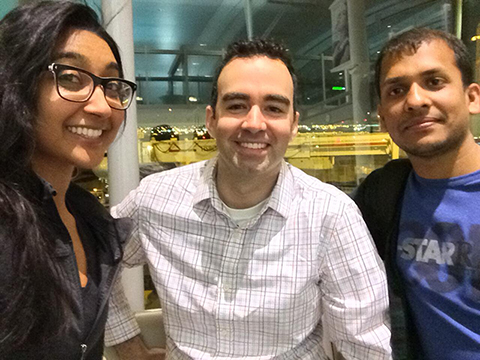My research centres around solving the problems where I believe I can have the highest impact. I am also keen to develop technology that can be applied now, which can include field testing, prototyping, and some entrepreneurship. Currently, I'm focused on developing sustainable energy technology that can tackle climate change. The work in my lab features a multidisciplinary integration of fluid mechanics, thermodynamics, physics, and chemistry. A combined theoretical and experimental approach is used.
At their core, many sustainable energy technologies are thermofluid systems governed by the principles of fluid mechanics and thermodynamics. Often, we can come up with innovative designs by delving more deeply into the fluid mechanics, thermodynamics, and heat transfer, and we often combine theoretical understanding with experimentation.
My research has focused on Stirling engine design, biomimicry of human perspiration for efficient cooling, energy transport in evaporating sessile droplets, the development of microfluidic devices for water purification and point-of-care diagnostic devices for the developing world (in partnership with a hospital in Vietnam), paper-based tests for arsenic contamination in tubewells in Bangladesh, and hydrogen storage in metal hydrides. The research section of this website highlights the main projects currently being undertaken in my group.














